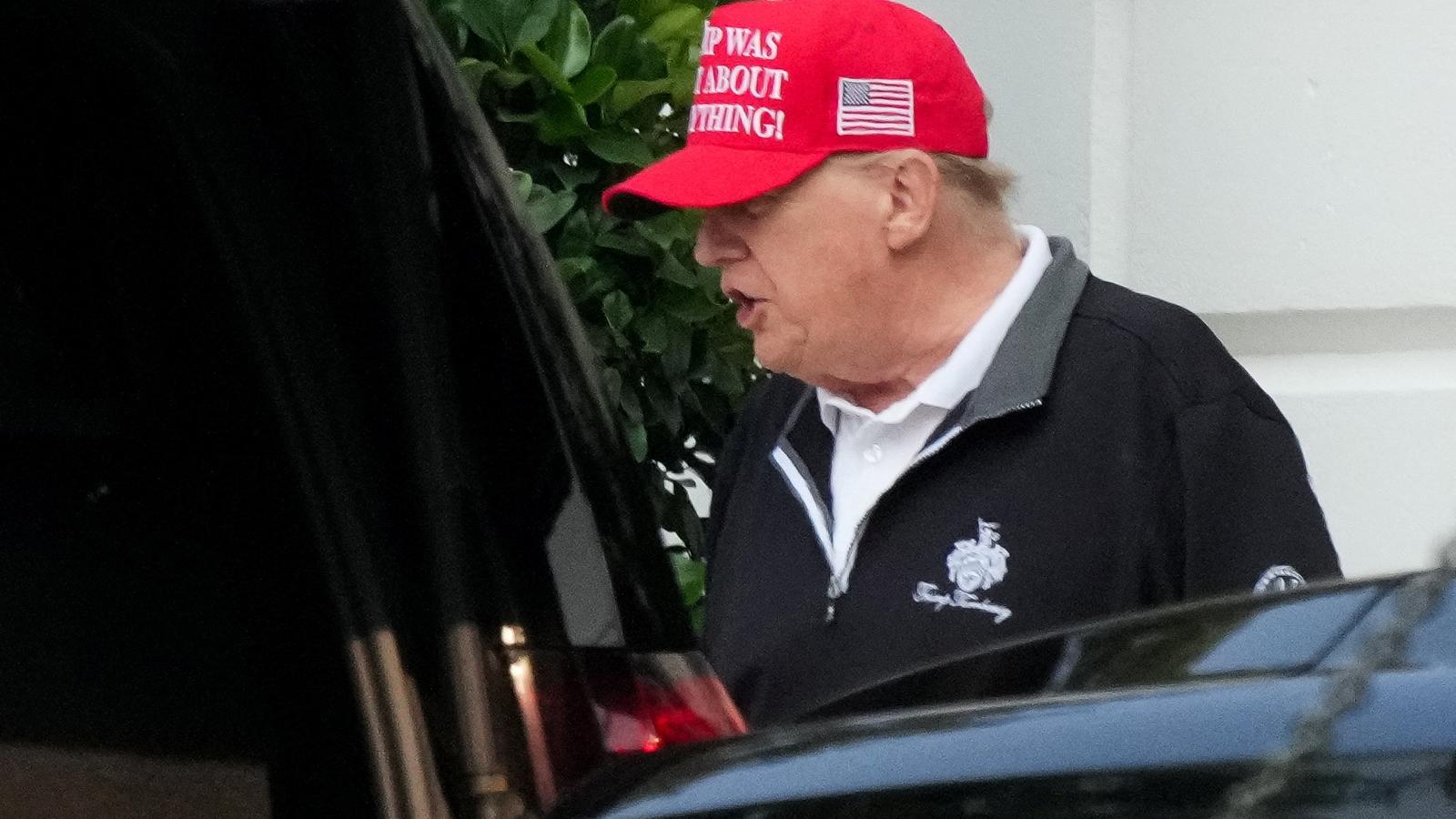Trump's goal: to drive China away from Latin America
The US president intends to regain US hegemony in the region.


Washington"Cooperate, yes, but without submitting." Mexican President Claudia Sheinbaum keeps repeating this phrase as she navigates Donald Trump's erratic demands. The statement resonates with the Latin American collective memory and with a fear that the US administration has now rekindled with its war on drugs: Washington wants to take back its backyard. Secretary of State Marco Rubio's promise to carry out new military actions Similar incidents to Tuesday's attack on a vessel allegedly transporting drugs to the Caribbean Sea open a new phase in the White House's campaign to "regain US hegemony in the hemisphere," warns Manuel Balcázar, a researcher at the Center for Security, Intelligence and Governance Studies.
The Trump administration's new war on drugs is much more geopolitical than narcotics. The use of military threats is yet another expression of the Monroe Doctrine, which the US president has revived. Trump considers controlling certain regions to guarantee the country's security a priority in US foreign policy, whether through military or economic control. In the case of Latin America, Washington sees it as a natural area of influence.
"It's a loaded diplomacy, in which the Secretary of State uses military pressure to achieve alignment with the United States' economic agenda, which necessarily involves limiting China's growing presence in many Latin American countries. Not only in ports, but in many other sectors such as the automotive industry," notes the political scientist. Former director of the Inter-American Dialogue and Georgetown professor Michael Shifter assures that Trump "will use it as a pressure tactic," but unlike the backyard politics of the 20th century, "it is very unlikely that he will attempt regime change in these countries."
At the beginning of his term, Trump already made his intentions clear when he expressed his desire to annex the Panama Canal in the face of the growing influence of Chinese companies over the infrastructure. "They exerted diplomatic pressure to stop the Chinese from influencing the canal with the Silk Road project," notes Balcázar. Although Tuesday's military attack marked a turning point and an unprecedented escalation of tensions with Venezuela, Mexico has long been living with the economic-military-stick policy, rather than the carrot-and-stick approach. As soon as he took office, the US president deployed thousands of troops to the southern border while drafting 25% tariffs on Mexico, which are currently frozen until October.
The current escalation with Venezuela is an indirect message throughout the region, and it's no coincidence. Ironically, in order to fulfill his campaign promises, Shifter points out, Trump also depends on Latin American governments. "For Trump, the main issues are security, drugs, and China, and all three are relevant in Latin America. The renewed interest in the region can be explained in terms of domestic politics: trying to keep his voters satisfied by projecting strength and power in the region, dominating and intimidating smaller, more vulnerable countries," adds Michael Shif.
The executive order relabeling the cartels as terrorist organizations was signed in January, but it wasn't until now that the president used it. The timing is not coincidental. "To realize his agenda, if we're talking about curbing immigration, Trump needs to regain hegemony over the economic, political, and social capabilities of the hemisphere. Within the United States, he can't go much further: he's deployed the National Guard in some cities and is escalating immigration raids. He's also threatening to use it, although to justify Tuesday's attack, international law will have to be stretched quite a bit," Balcázar emphasizes.
International law scholar Mary Ellen O'Connell is categorical about Tuesday's attack: "What the United States did was illegal. There is no legal right to use force, much less a missile attack against people suspected of crimes." She considers it a very dangerous precedent. "I have been a professor of international law for almost 40 years and I have never seen this term used." narcoterrorists"There are no narco-terrorists under international law," he added. Regarding the United States' announcement of new military actions in the future, Shifter is clear: he believes that "Trump's threats must be taken seriously."
